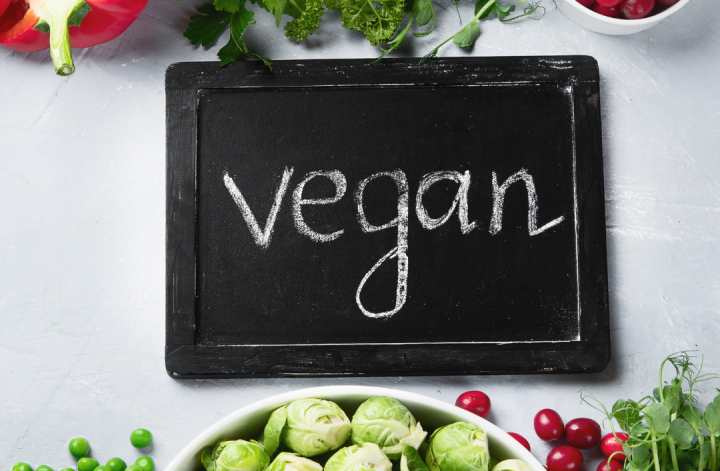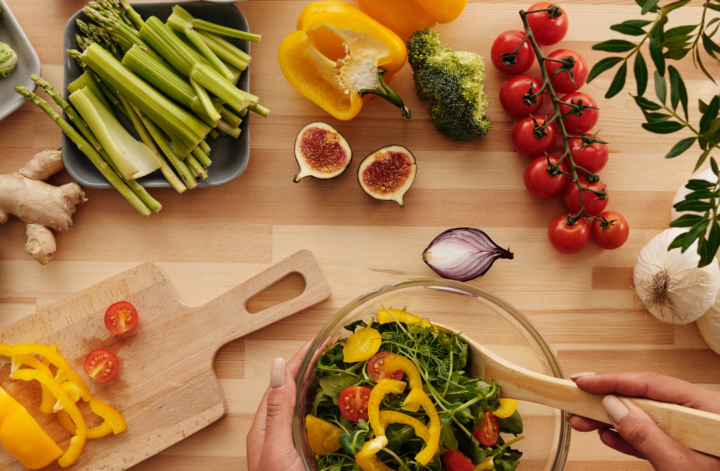One of the most popular diets today is the vegan diet. By definition, veganism is the practice of not consuming any animal products. Vegans who eat a restrictive diet miss out on essential nutrients that can impact overall health. A vegan diet is nutritionally incomplete, so vegans need to ensure they get their essential nutrients from other foods. Living such a lifestyle can be a blessing and a curse as well. On one hand, you get to eat delicious and nutritious plant-based foods. However, on the other hand, you have to make sure that you’re getting the nutrients you need.
The transition to a vegan diet might overwhelm some, especially if you have never thought much about nutrition before. For someone people who have been on a mixed diet of veggies, meat, and poultry products, it can be a shock to their system to suddenly have to rely exclusively on plant-based food. But fear not, staying healthy and happy on a strict vegan diet is possible. If you want to follow a vegan diet successfully, you’ll need to learn how to ensure you get the right nutrients. If you’ve been planning to go ahead with such a diet, now is the best time to start by checking the right nutrients your body needs.
Protein
Protein is essential for a healthy diet. Vegans need to make sure they’re getting enough protein; just as non-vegans need to. Protein helps you build and repair tissues, muscles, bones, blood, and organs; without it, your body can’t function properly. It also helps with hormonal balance, digestion, weight management, and immune function as well.
Omega-3 Fatty Acids / DHA & EPA
Omega-3 fatty acids are especially important for any vegan. They’re important for the same reasons that omega-3 fatty acids are important: they decrease your risk of heart disease, improve your brain function, and support eye health. Omega-3 fats, or fatty acids, are an important component of our diet. They’re found in plant sources, such as walnuts, flax seeds, chia seeds, olives, soybeans, and canola oil. These healthy fats are beneficial to our health because they reduce inflammation, which plays a role in many chronic diseases.
Vitamin A
Vitamin A (also known as retinol) is a fat-soluble vitamin that is one of the essential vitamins for the human body. It helps promote normal vision, immune function, and reproduction, among other functions. Vitamin A is also an essential vitamin for vegans since animal-based foods, such as milk, cheese, and eggs, lack this nutrient. While there are no proven health benefits to getting vitamin A from plants, a vegan diet with adequate amounts of the vitamin is safe.
Vitamin B12
Vitamin B12 is an essential nutrient that’s hard to get from vegan diets, but supplementation can help. Vitamin B12 deficiency can cause anemia, one of the most common nutrient deficiencies in the United States. While meat-eaters typically get adequate B12 from their diet, vegans and vegetarians typically don’t. Fortunately for the non-vegetarians among us, vitamin B12 is naturally found in foods like meat, fish, milk, eggs, and cheese, as well as in some fortified foods or fortified breakfast cereals.
Vitamin C
Vitamin C is a water-soluble vitamin that is found in fruits and vegetables. Ascorbic acid can be found in many fruits and vegetables. The levels of vitamin C may differ based on the kind of fruit and vegetable. Vitamin C does have two salts: ascorbic acid and l-ascorbic acid. Ascorbic acid is the vegan form of vitamin C and is more commonly taken. Vitamin C is an essential nutrient. It is an antioxidant required by the body for neutralizing free radicals, and unstable molecules that can cause damage to cells. Vitamin C is water-soluble, which means it dissolves in water. Because the body cannot store vitamin C, it must be replenished regularly.
Vitamin D
Vitamin D is important for your body, especially if you’re a vegan. Vitamin D, or calcitriol, is a hormone produced by the skin when exposed to sunlight and helps you absorb calcium. The deficiency of Vitamin D can result in bone problems like osteoporosis and rickets. Additionally, it can also cause muscle weakness and delays puberty in teenagers. Your vitamin D levels may drop if you switch to a vegan diet. If that’s the case, you need to take a supplement. That said, Vitamin D is found naturally in very few foods, including tuna, salmon, beef liver, and egg yolks. It is also artificially made in a few foods, including dairy products such as milk, butter, and cheese. However, most plant-based foods do not contain vitamin D. Therefore; you may need a vitamin D supplement if you’re on a vegan diet.




